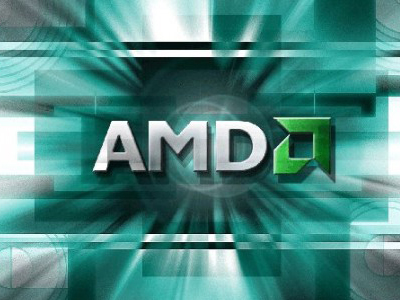CUDA, PhysX Are Doomed Says AMD's Roy Taylor
Here's a little smack-talk dished out by AMD.
In a recent interview with VR-Zone, AMD’s VP of channel sales Roy Tayor said that Nvidia's CUDA is doomed, and PhysX is an utter failure. Why? Because the industry doesn't like proprietary standards. Companies could get away with it in the early days of gaming, and it worked. But today, in a world of multiple platforms and form factors, proprietary standards are deemed unhealthy for the industry, and nobody wants it.
"Nvidia should be congratulated for its invention," he said. "As a trend, GPGPU is absolutely fantastic and fabulous. But that was then, this is now. Now, collectively our industry doesn’t want a proprietary standard. That’s why people are migrating to OpenCL."
For the uninitiated, OpenCL (Open Computing Language) is an open standard (framework) for cross-platform, parallel programming of processors (CPU,s GPUs, DSPs etc) used in mobile devices, servers and personal computers. It's maintained by the Khronos Group and adopted by Intel, Qualcomm, AMD, Nvidia, Samsung and several others.
In the interview Taylor also pointed to Intel's Sandy Bridge platform in which 17 percent of the die was GPU, Ivy Bridge which went up to 27 percent and Haswell around 32 percent. There's definitely a pattern, he said, and believes that Intel will eventually adopt the term APU much like ATI was forced to ditch the visual processing unit (VPU) label it began using in 2002 after the launch of the Radeon 9700.
"We think the reason they’re doing that is because of GPGPU," he said. "It’s not because of games. I think they see that HSA is an absolutely unstoppable force. I just don’t know why they don’t call [Haswell] an APU… it seems just like pride. If you remember [ATI] tried to join the coin term VPU… ‘No, no, no, it’s a VPU not a GPU,’ they would say. GPU just became widely adopted they just quietly adopted it, and I believe Intel will do the same. Look [Intel] it’s an APU, why are you protesting?"
As for SoCs with GPU cores versus standalone graphics cards, he believes there will always be a market for enthusiast gamers wanting the latter option. However there are some signs that APUs are eroding the lower-middle end discrete graphics card market.
"For enthusiast gamers, graphics cards will never go away," he said. "Unlike our competitor, who’s obsessed with launching consoles in the mobile market, we still love PC gamers and we’re absolutely committed to them. That’s never going to go away. Nobody should have any doubt that we’re committed to GPUs."
Get Tom's Hardware's best news and in-depth reviews, straight to your inbox.
To read the full interview, head here.

Kevin Parrish has over a decade of experience as a writer, editor, and product tester. His work focused on computer hardware, networking equipment, smartphones, tablets, gaming consoles, and other internet-connected devices. His work has appeared in Tom's Hardware, Tom's Guide, Maximum PC, Digital Trends, Android Authority, How-To Geek, Lifewire, and others.
-
BringMeAnother Why even bother to say such things when you work for a rival company? What he says may or may not be true, but this just sounds like chest pounding.Reply -
Giovanni-L That is basically being made public to defend AMD's image here on Tom's.Reply
I find it revolting to see "paid-info-wars" happening on this website. I might just migrate do Anandtech or whatever. -
fatboytyler I mean he does have a good point. Games with heavy PhysX use are bit unfair to AMD users.Reply -
redeemer PhysX has never taken off, OpenCL is taking over. This is not new, this is the way of the tech industry!Reply -
notsleep well, how about listing all the openCL games against a listing of physx games?Reply
just off the top of my mind, i only know of physx games. -
InvalidError I don't see why AMD wants Intel to adopt their APU term; their primary purpose is still to act as the CPU no matter what other bits and bobs get integrated.Reply
I doubt many people who know about APUs actually cares whether they call it APU or CPU. To me, this sounds like an obnoxious kid trying to get attention... yes, I know AMD wants us to call them APUs but to me, they're still CPUs with IGP. -
mightymaxio So what does that make TressFX from AMD or any of the other restrictive technologies holding back the Linux community? NVIDIA has had far better driver support for Linux than AMD has ever had and now it just seems like AMD is spreading lies about NVIDIA not being open source lol.Reply -
pocketdrummer AMD is coming off like a bunch of douche bags. It's one thing to say you have the superior product, it's another entirely to put down the other company in such a pompous manner.Reply
This makes me want to buy nVidia even more. -
dudewitbow @mightymaxioReply
it actually depends, AMD is better with open driver support on linux, nvidia is better with closed driver support. AMD only currently looks bad right now on the linux front because neither company has released an open driver any time recently, and since nvidia is better on the closed front, makes them the better option.
